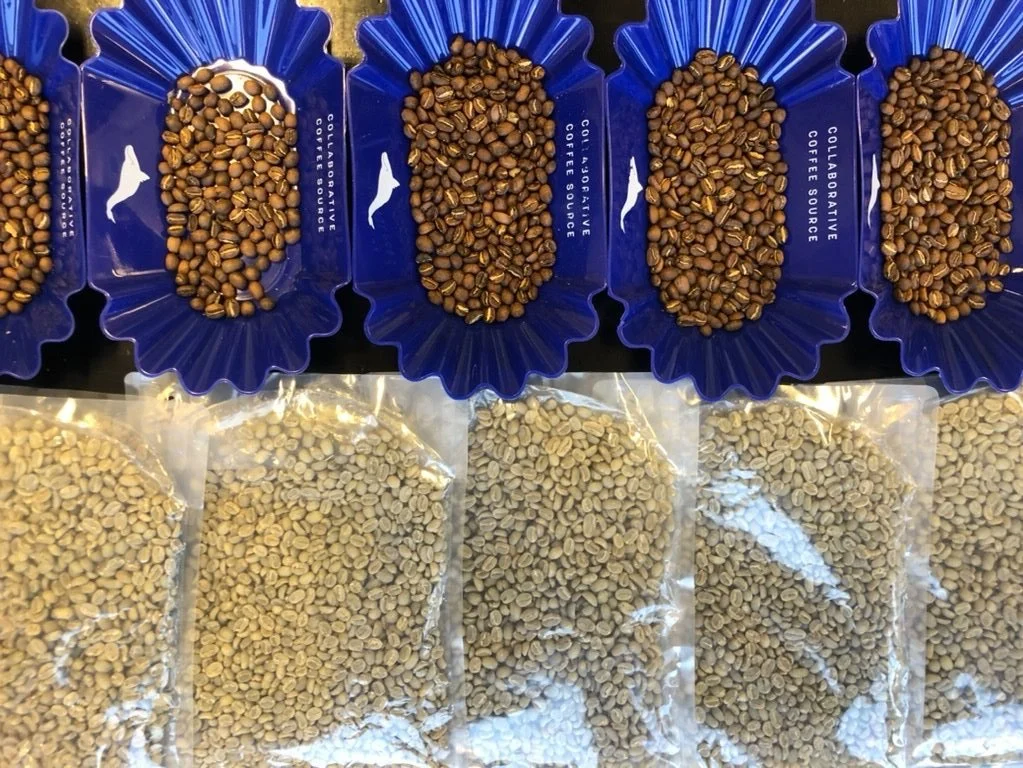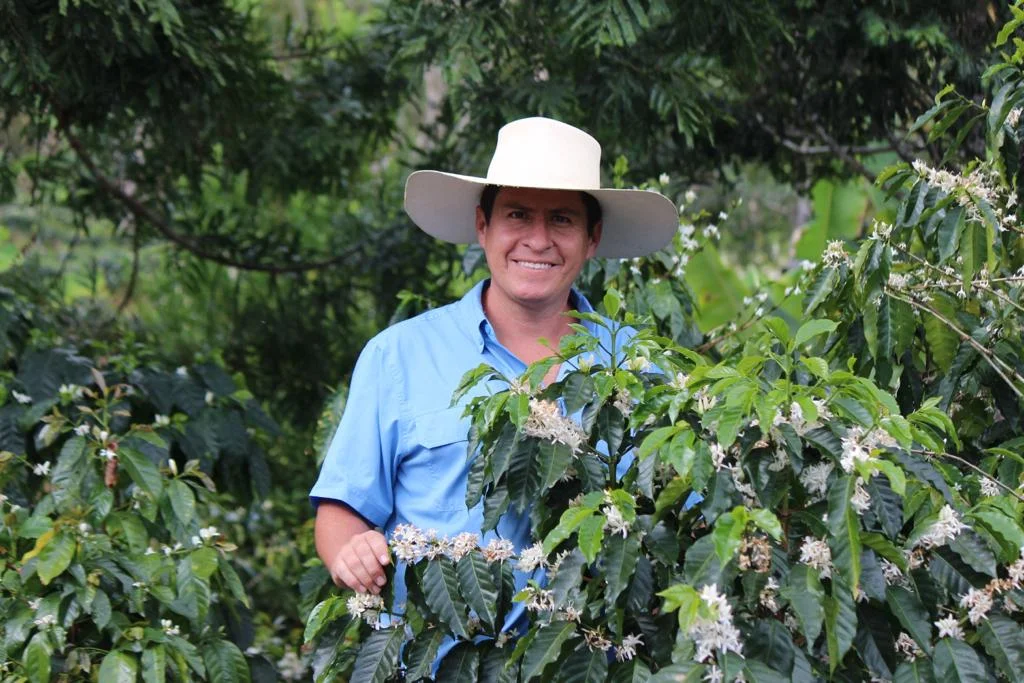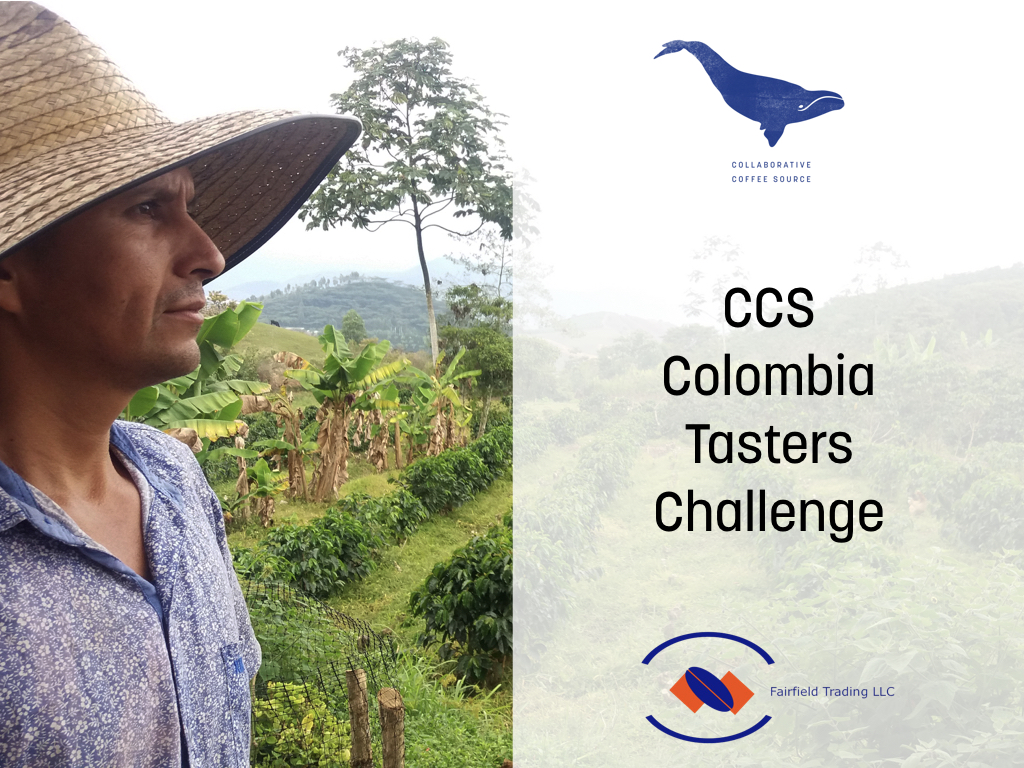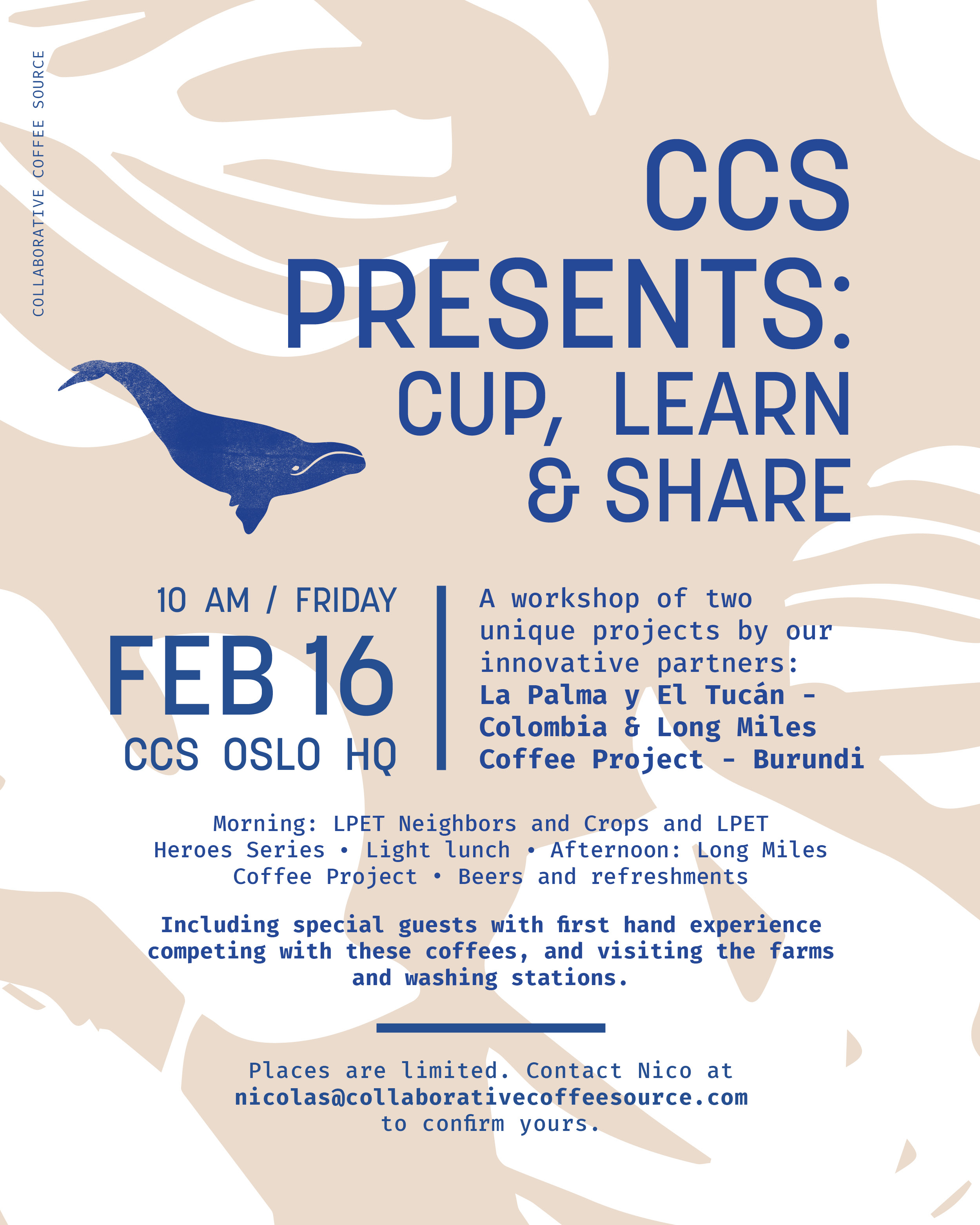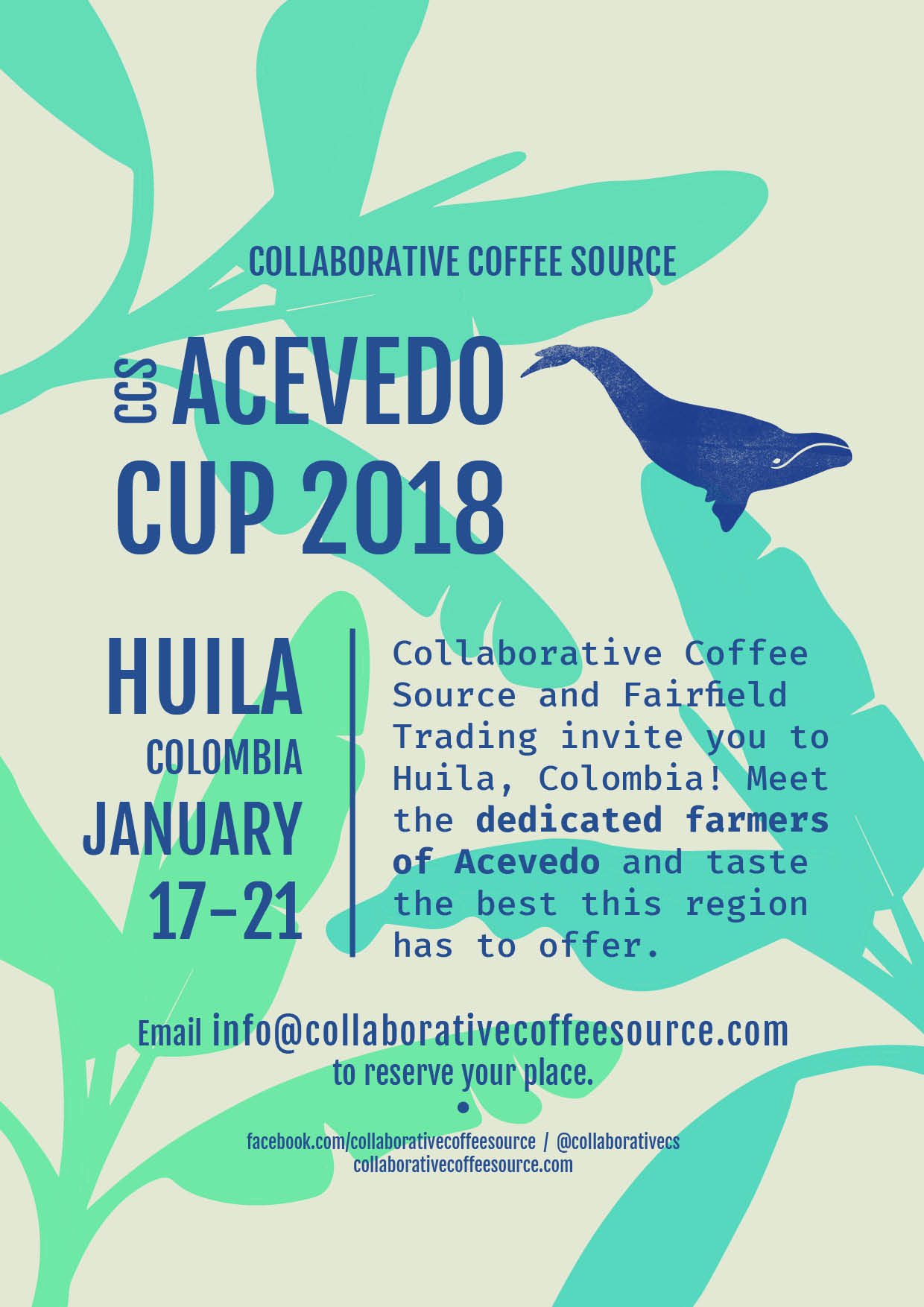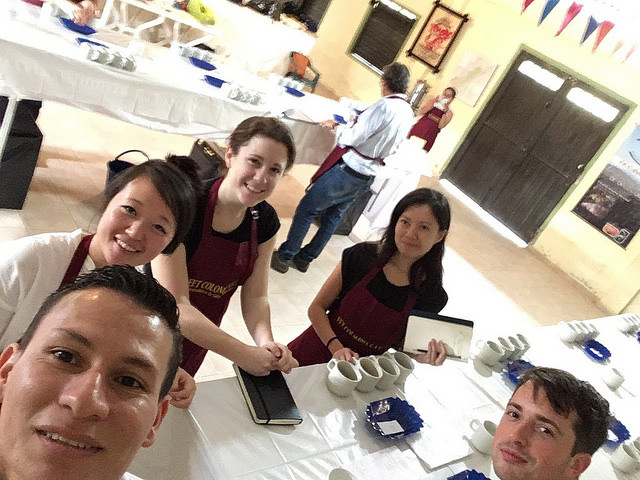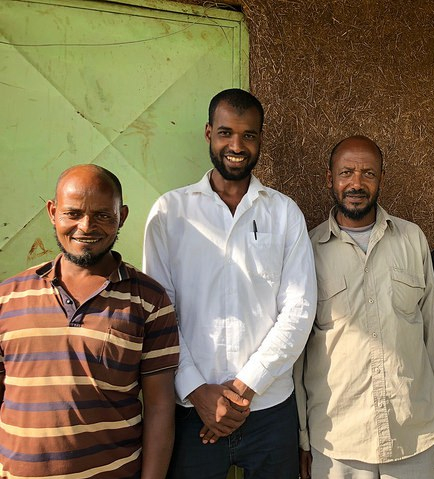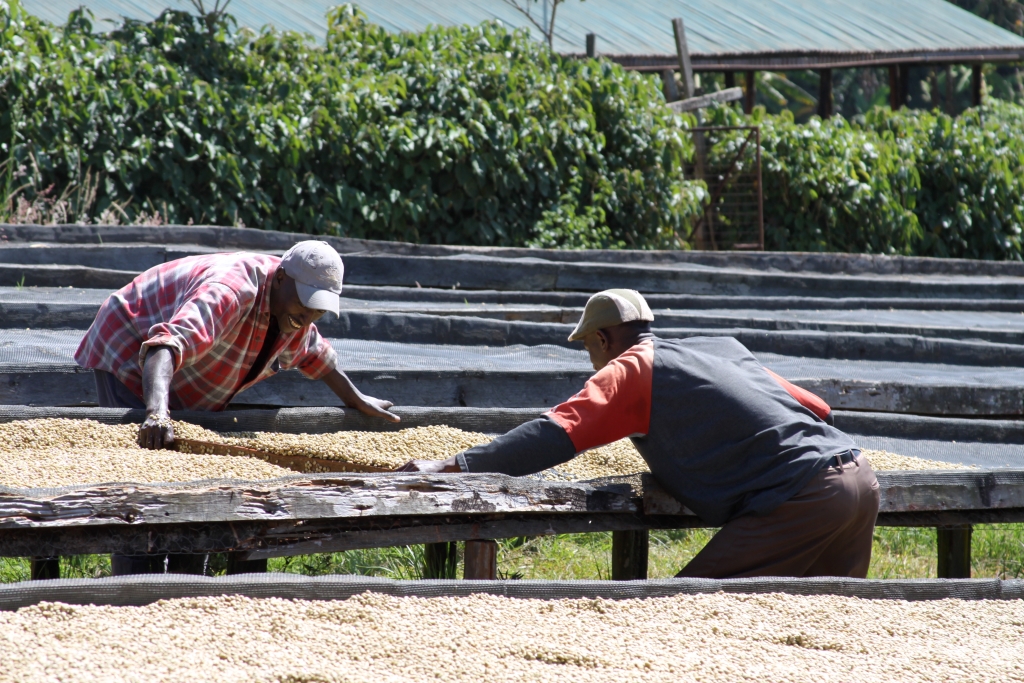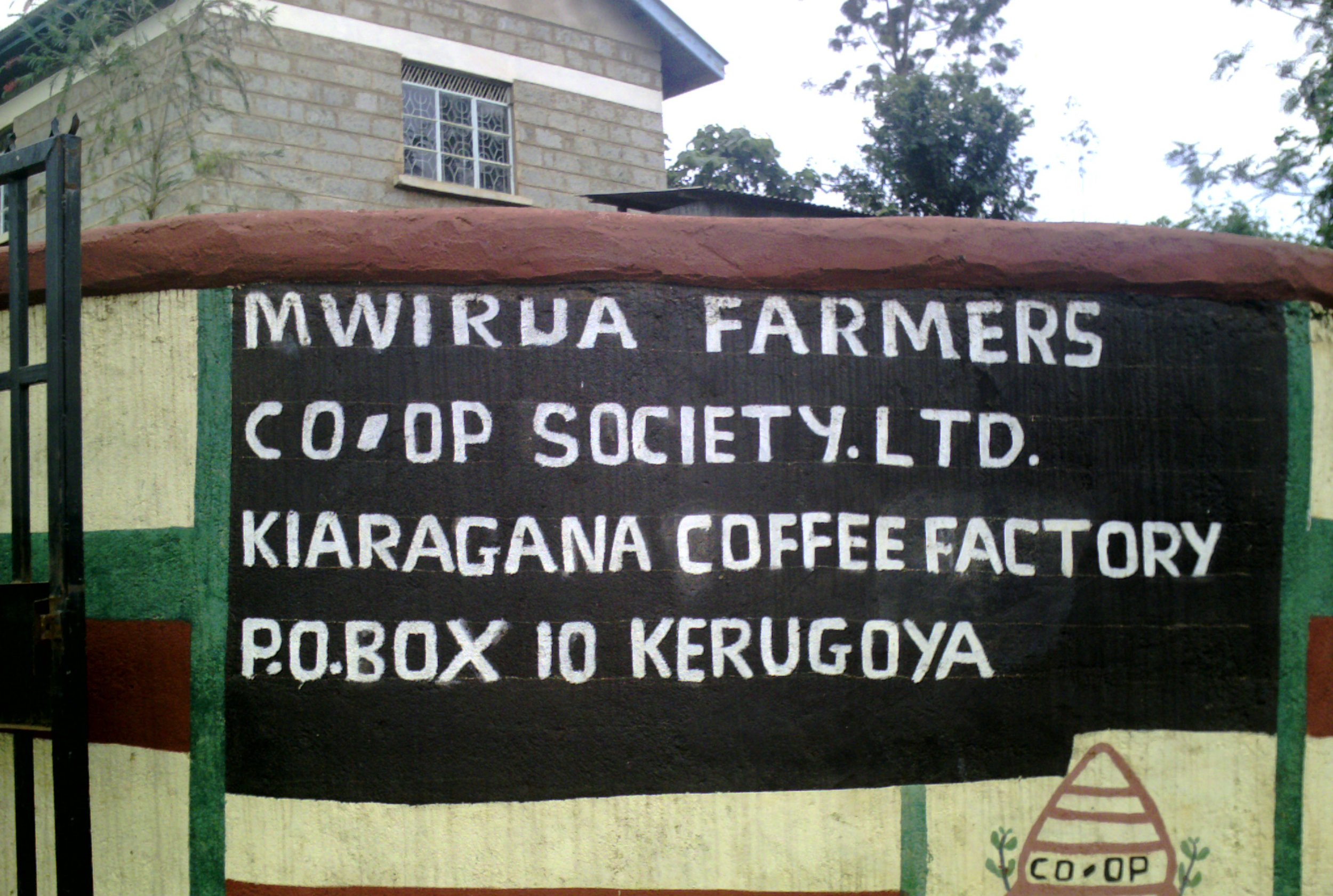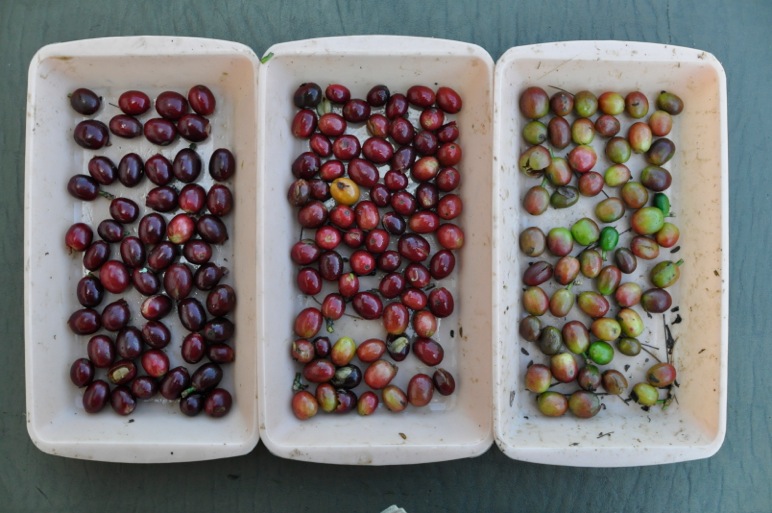Remember the days when the main quality distinction among Colombian Coffee qualities was Excelso (‘export quality’) and Supremo (‘export quality’, bigger screen)?
Those were the days…
Looking back just a few years in time, it is evident that the development of ‘Specialty Coffee’ as a term and as a mindset has changed how we perceive coffee, how we describe it (with flavor attributes), how we communicate about it (as product from a concrete place and person) and how it is traded (transparently).
One may take these things for granted today. As we all should.
Soon Colombia will celebrate its 10th year as member of the growing and still exclusive group of coffee producing countries that have been scrutinized and recognized by the Cup of Excellence (CoE) program. The program’s mission is to bring farmers to the forefront, by acknowledging both their existence and individually crafted products.
Up until ten years ago ‘Colombian Coffee’ had been presented to the world by a very different marketing concept. As early as in 1958, the Colombian Federacion Nacional de Cafeteros (FNC) created Juan Valdez, a marketing mascot playing the role as a personification of the Colombian Coffee Farmer. ‘He’ is not only a fictive figure, but has represented FNC’s marketing concept which, quite tellingly, has been a presentation of the entire community of Colombian coffee farmers, meant to build a collective pride as a nation of coffee famers. And it has worked well for a long time.

Colombian coffee had been marketed as a brand and as a blend, made collectively by the country’s half million coffee farmers, and managed to build a worldwide reputation for its quality. It had fame and recognition and became a staple on every roaster’s menu. CoE’s concept of bringing farmers individually and personally into the light and onto the stage, which at the time was a new idea, didn’t fit perfectly well with how Colombian coffee had been marketed by the FNC in the past.
With the CoE competition in 2005, this was literally the first - and ultimate - test of what Colombian Coffee really was about. Since the average production at a coffee farm in Colombia is much less than the CoE program’s minimum submission requirement of 12 bags, farmers were allowed to form groups with coffee from up to three farms constituting a CoE competition-lot. Despite this stipulation, samples representing over 800 lots were submitted to FNC’s center in Manizales that first year, where the national CoE jury first pre-screened the samples based on technical quality and then began the comprehensive cupping/further screening and re-cupping processes of the remaining 150+ samples. Of these, the international jury were presented with 60+ of the best samples and given the task of cupping and scoring them all over again. The CoE international jury’s mandate is to screen the national jury’s selection further in order to find the very best lots (at the time those who scored an average of 84pts or more), and then ranking these top coffees, as well as describing each coffee’s attributes.
Many of the well-known personalities, new and old in the coffee trade, were on that jury, including the gracious Grand Lady of Specialty Coffee, Erna Knudsen. As a matter of fact, it was she who coined the term Specialty Coffee almost thirty years prior to this event.

During the course of two weeks, all the samples from the submitted lots were cupped five times, but even with all that, on the final table, when ranking the top 10 coffees on the final day of the competition, samples were rejected for phenolic off-flavors, a defect that is usually related to issues with the processing of the coffee cherries. Hey, Juan Valdez, what was going on?!
In the end, the remaining top coffees were fantastic and all the farmers’ names were revealed. The winners received their standing ovations and sold their coffees at the auction at record prices. Regions and microclimates were discovered. A new era began.
Still, this was also a time for reflection on how to approach the seemingly endemic processing issue that had thrown so many coffees out of the competition.
Meanwhile, another kind of problem had been threatening the Colombian coffee tree population for a long while. Coffee Leaf Rust, La Roya, is such a long-standing phenomenon that Colombians commonly use it as a slang term for something that ‘takes with it whatever comes in its way’: La Roya se lo llevó. Coffee farmers have had to struggle with climate and climate changes that have created environments where fungi that can kill coffee trees leaves are able to flourish. The traditional ‘Colombia Varietal’, a Catimor hybrid, was designed to be Leaf Rust resistant, whereas the Caturra varietal became known to be more susceptible to it, yet many farmers have been able to work out Roya-threats proactively.

Coffee is a cash crop; it is handled as any other cash crop, like soy, maize, beans, bananas, etc. Coffee farming in Colombia is usually a rather non-technical enterprise, often times with little planning, thus no calculations for concrete outcomes. With little control over harvest outcome, revenue, and cost control, one becomes vulnerable to unexpected problems and market price volatilities. Coffee farming is often times a losing proposition.
Being on top of the game requires more than just will. Taking care of a farm, particularly with the ever-present risk of a Roya-attack, is labor intensive and costly. Cleaning weeds, pruning trees, fertilizing, and in order to maintain sound trees is key, particularly when there is an environmental threat lurking. A healthy tree is generally less susceptible to diseases like Roya. If proactive spraying is necessary, usually done with copper, this is an extra cost to already expensive regular operations.
One may take the chance and do nothing about disease prevention, but if the farmer wants to be proactive and doesn’t have money saved from previous harvest sales to buy the required products and pay for the labor to apply it, he can easily find himself within the hands of those money lenders, or those who sell disease prevention products on a credit basis. These suppliers can be private, sometimes a cooperative, but usually the supplier is the FNC itself. The same FNC that guarantees buying coffee at the market price, but at market price only…
One of the results of all of this is that the concept of investing in a coffee farm and keeping healthy coffee trees isn’t necessarily a viable path from an economic perspective - considering the level at which coffee is usually paid for. So when fertilizers and fungicides are needed, a vicious cycle of borrowing money before the upcoming harvest can easily develop. When you don't own the revenue for your own coffee harvest until all debt has been paid off (sometimes at exploitative high interest rates) it becomes tempting to not spend extra money on the farm.
For Colombia, as a coffee producing country, this kind of vicious cycle has been even bigger. When millions of trees lost their leaves, partly due to insufficiently attentive farming practices or plain negligence, many farms lost entire harvests, meaning Colombia as a nation lost a lot of revenue. The FNC went on the hunt for solutions!
This is when the Castillo varietal, a modern version of the Colombia (Catimor) varietal, was developed and pushed for by the FNC. Castillo was cleverly designed as 11 different types, meant to be ‘site specific’ to particular geography, environmental and climatic conditions around the country. But the FNC not only encouraged farmers to exchange the Roya-susceptible Caturras into Castillo; Castillo was made a requisite variety, meaning it became eligible for subsidies and credits from the government.
Castillo has its benefits. It can be planted more densely (higher yield per hectare), the trees are shorter (easier to access for cherry pickers), and it produces more even cherry ripening than other varietals (making the harvest season shorter). Though whether Castillo continues to be resistant to Roya, or other fungi, in the future is as yet to be seen. Coffee farming may not prove to be that simple.
The good news for Colombia is that tanking production levels and a record low of 7 million bags is now turning around. Production levels are back at 11 million bags; approximately where they were ten years ago.
In the meantime, the country has transformed itself into a ‘Castillo-origin’ making the other varietals (Caturra, Bourbon, Typica, Tabi, etc.) more difficult to find. Begging the question: How smart is this, when a growing market is asking for diversity and specialty quality?
And this is all political. Of course it is!

As a nation, for which the GDP is dependent on coffee, the market price level matters.
On the other hand, Colombia’s coffee production level (volume) affects the world market and international coffee price. In any economy where a product is – to such an extent – culturally engrained, is so much part of national identity, with so many livelihoods dependent on it, it will be – and should be – a political matter. But as is any political matter in any modern society, it is – and should be – up for debate; the policymakers in power accepting of questions. As independent as the FNC is supposed to be, there is no question that it is seen as, as well as functions as, an extension of the governing institutions of the country. I get this perception. Policies need to adapt to changes occurring over time, whether they are internal or, as is very much the case with coffee, international. Today, the parties on both ends of the chain, the producers and the buyers, are interacting and communicating more transparently than ever before.*
Colombia is not merely a coffee supplier; the ‘market’ is not merely asking for supply.
For one, the ‘market’ is divided into at least three coffee segments:
- Commodity coffee (sold at NYC with a differential);
- Certified coffee (sold with a premium);
- Specialty Coffee (sold at a negotiated price based on quality assessments, including cup attributes).
With this backdrop and based on recent visits, my next article will look into what is happening in the field of Specialty Coffee in Colombia right now.

As an important aside, the Cup of Excellence program celebrates its 100th competition this fall. Susie Spindler, the program’s director for many years has chosen to step down, thus we should take a moment to reflect on her formidable and significant contribution; building CoE’s credibility by holding firmly to it’s protocol, which has helped to define Specialty Coffee as we know it today. CoE, under Susie’s tenure, has helped create an understanding of the individual origins it has been present in since the program’s inception in Brazil, 1999.
Looking back at a hundreds of years of coffee history, this understanding has developed a long way in a very short time. Thank You Susie!
- Robert W
*In the case of Specialty Coffee we are seeing a drive toward taking charge of the production by ‘designing quality’ for specific markets. With so many Colombian farms being re-planted with the Castillo Varietal, the question becomes if the Country is able to meet the demand of an increasingly growing Specialty Coffee market.

